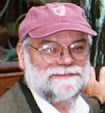If you want to be a good writer you need to do the following:
a. Read a lot--especially the kinds of things you want to write. I myself am especially interested in writing poetry, biography, and memoir. So that's what I need to be reading. It's also important to be reading good-quality material. How do you know what is good quality poetry, biography, memoir, or fiction? You begin to recognize quality when you do a lot of reading, but you also need help from teachers and friends. It is very hard to get a sense of quality all by yourself.
b. Write a lot. You need to write regularly and for an audience if possible. Try to write every day. You don't have to show everything you write to others (some things should be shredded and burned, especially what Anne Lamott calls "shitty first drafts"). Sometimes you will need some sort of memory-erasing procedure for your crappy work (which everyone creates). If you share crappy work, do it only with generous and forgiving friends (I have a few I can share with). Even then, you might have to put them through a memory-erasing procedure! Or they may never love you again.
Stories and poems can take considerable time and psychic effort to write. Still, you will have time to write diary and journal entries, emails, and blogs besides the stories and poems you are working on. Don't underestimate the power of emails and blogs for improving your writing skill. Emails demand an audience and often allow you to experiment with attitudes, ideas, voice, techniques. You can try to be humorous (very difficult--often fails!). You can try to communicate clearly--it's hard. You have to keep working at it. Blogs are normally public, but they give you the opportunity to edit and delete entries--even long after the original posting date. Blogs often allow for comments from readers and you can manage and delete comments if you wish (or you can disallow them). Anyway, I am pretty sure I have greatly improved my writing by blogging and writing emails to my friends and family.
c. Try to get feedback on your writing, both from friends and peers, and from teachers, mentors, or masters. You give them generous yet honest feedback, and they give you the same. You accept criticism (but don't believe all of it). You try out their ideas and see how their suggestions turn out.
In the end, you hold on to your confidence and your powerful sense that you have something to say, something to share with the world. And you will improve and join the great conversation that is writing. I have seen very mediocre writers become excellent writers by following the advice given above.
Finally, read two books: Anne Lamott's Bird by Bird, and Natalie Goldberg's Writing Down the Bones. These brilliant, humane, and very funny books will help you grow as a writer.
Subscribe to:
Post Comments (Atom)


No comments:
Post a Comment